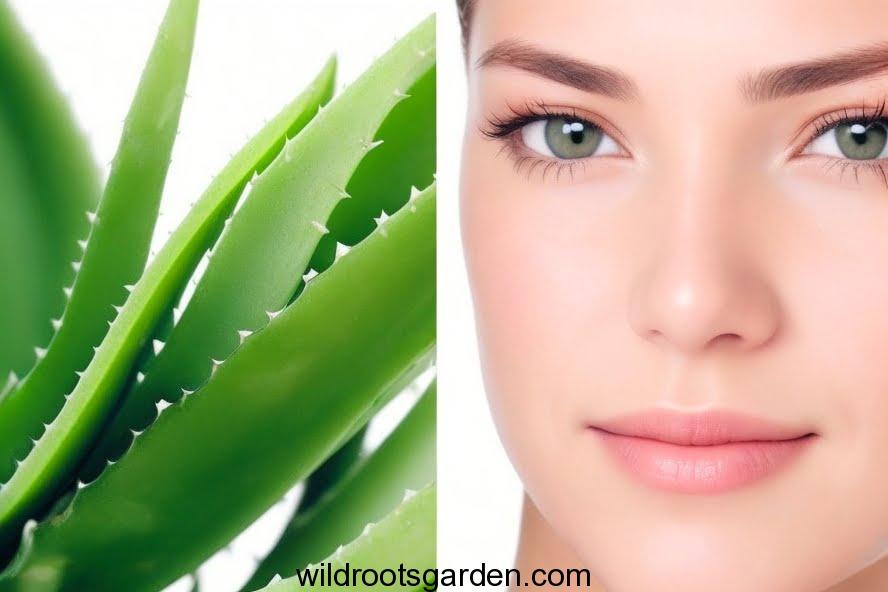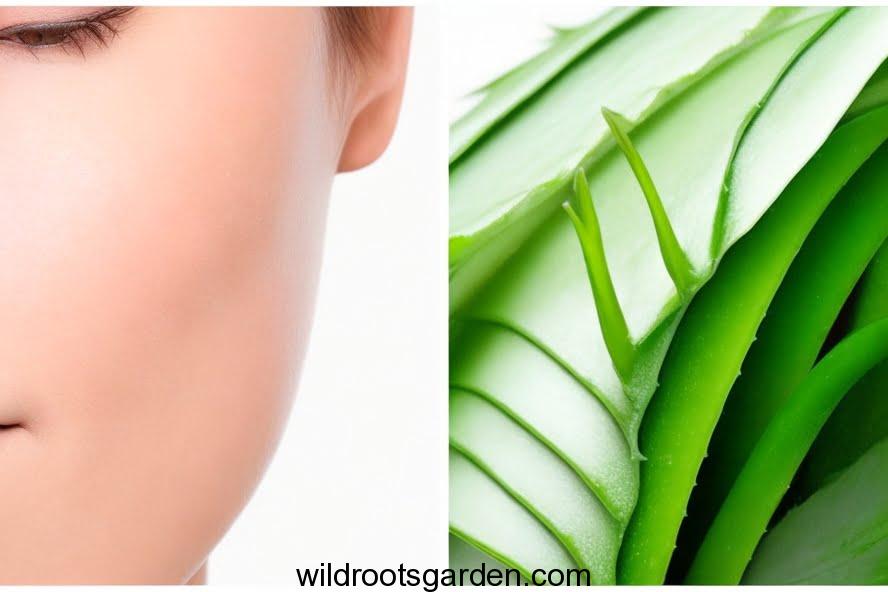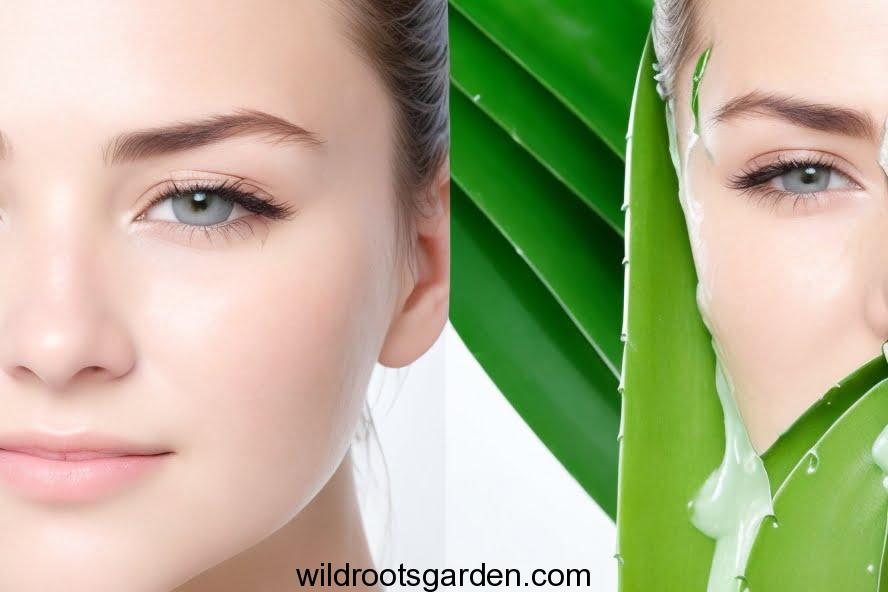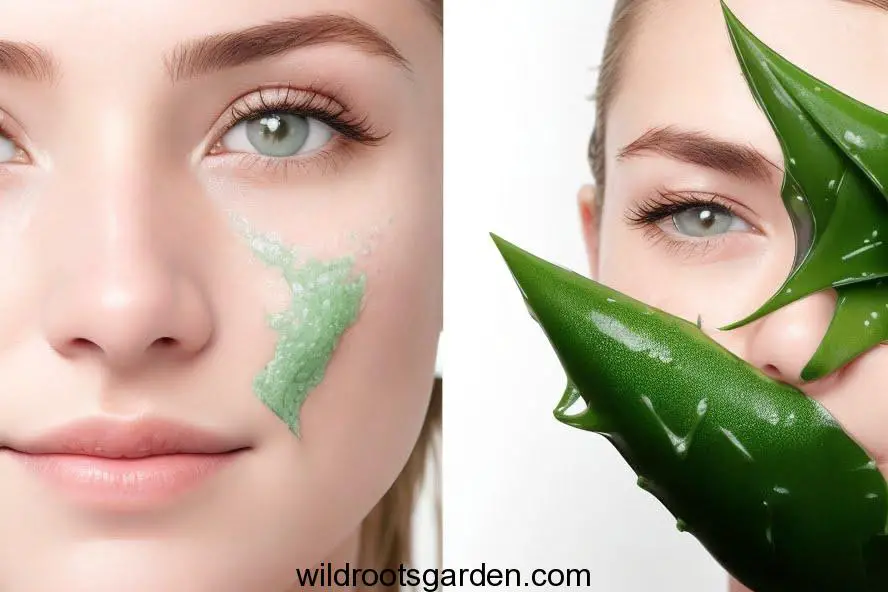Aloe Before or After Moisturizer. The order in which we use skincare products can have a big impact on how effective they are. Aloe vera and moisturizers, which are known for their moisturizing and nourishing characteristics, are two crucial elements of many skincare regimens. Aloe vera application before or after moisturizer is still up for dispute among enthusiasts and experts in the field of skincare.
In this discussion, we examine the advantages of applying aloe vera gel either before or after moisturizing and consider its possible advantages when combined. The best order for getting healthy, radiant skin can be determined by knowing the science underlying each product’s function in skin care. Finding the right order for these powerful compounds is essential for realizing their full potential, whether you wish to relieve dryness, calm skin irritations, or just improve your skincare routine. Let’s solve the aloe vera and moisturizer application puzzle and open the door to refreshed and youthful skin.
What is Aloe Vera?
Aloe vera is a succulent plant that has been used for medicinal purposes for centuries. It is known for its gel-like substance that can be extracted from its leaves and used topically to soothe and heal the skin. Aloe vera is rich in vitamins, minerals, and antioxidants that can help to nourish and protect the skin, making it a popular ingredient in many skincare products.
Benefits of Aloe Vera for the Skin
Aloe vera has a variety of benefits for the skin, including:
- Soothing and calming irritated skin
- Moisturizing the skin
- Reducing inflammation and redness
- Fighting acne-causing bacteria
- Promoting wound healing
- Protecting against UV damage
What is Moisturizer?
Moisturizer is a skincare product that is designed to hydrate and protect the skin. It typically contains a mixture of water, oils, and other ingredients that can help to improve the skin’s barrier function, preventing moisture loss and promoting a healthy, glowing complexion.
Benefits of Moisturizer for the Skin

Moisturizer has a variety of benefits for the skin, including:
- Hydrating the skin
- Reducing the appearance of fine lines and wrinkles
- Improving skin texture and tone
- Protecting against environmental damage
- Helping to prevent acne
Aloe Vera Before Moisturizer
Applying aloe vera before moisturizer means that you are using it as a toner or serum, to prepare your skin for the moisturizer. This method is popular among those with oily or acne-prone skin, as aloe vera can help to control oil production and fight acne-causing bacteria. However, there are some pros and cons to using aloe vera before moisturizing.
Pros
- Aloe vera can help to soothe and calm the skin, reducing redness and inflammation.
- It can act as a barrier between the skin and the moisturizer, helping to prevent the moisturizer from clogging pores.
- Aloe vera can help to control oil production, making it a good option for those with oily or acne-prone skin.
Cons
- Aloe vera can be drying on the skin if applied before moisturizer, as it can create a barrier that prevents the moisturizer from penetrating the skin.
- If you have dry or sensitive skin, applying aloe vera before moisturizer may not provide enough hydration, as aloe vera alone may not be moisturizing enough.
Aloe Vera After Moisturizer
Applying aloe vera after moisturizer means that you are using it as a final step in your skincare routine, to lock in moisture and provide additional benefits to the skin. This method is popular among those with dry or sensitive skin, as it can provide an extra layer of hydration and nourishment. However, there are also some pros and cons to using aloe vera after moisturizer.

Pros
- Aloe vera can help to lock in moisture, preventing it from evaporating from the skin.
- It can provide an extra layer of hydration, making it a good option for those with dry or sensitive skin.
- Aloe vera can help to soothe and calm the skin, reducing inflammation and redness.
Cons
- If you have oily or acne-prone skin, applying aloe vera after moisturizer may not be the best option, as it can create a barrier that prevents the moisturizer from penetrating the skin.
- Aloe vera may not provide enough moisturization on its own, so using it after moisturizer may not be effective for those with very dry or dehydrated skin.
Which Method is Best?
There is no one-size-fits-all answer to the question of whether aloe vera should be applied before or after moisturizer. The best method for you will depend on your skin type, concerns, and personal preferences. Here are some general guidelines to consider:
- If you have oily or acne-prone skin, using aloe vera before moisturizer may be more effective, as it can help to control oil production and fight acne-causing bacteria.
- If you have dry or sensitive skin, using aloe vera after moisturizer may be more beneficial, as it can provide an extra layer of hydration and nourishment.
- If you have combination skin, you may want to experiment with both methods to see which works best for different areas of your face.
Tips for Incorporating Aloe Vera and Moisturizer into Your Skincare Routine
Here are some tips for incorporating aloe vera and moisturizer into your skincare routine:
- Choose a high-quality aloe vera product that is free from synthetic fragrances, dyes, and other irritants.
- Look for a moisturizer that is appropriate for your skin type, whether it is oily, dry, or combination.
- Apply a thin layer of aloe vera before or after moisturizer, depending on your preference.
- Use a gentle cleanser before applying aloe vera and moisturizer to ensure that your skin is clean and free from impurities.
- Be consistent with your skincare routine, applying aloe vera and moisturizer every morning and evening for best results.

***In conclusion, the decision to use aloe vera before or after moisturizer depends on your specific skincare needs and goals. Both aloe vera and moisturizers offer unique benefits that can complement each other when used together. Applying aloe vera gel before a moisturizer can act as a soothing and hydrating base, allowing the subsequent moisturizer to lock in the benefits and create a protective barrier on the skin. On the other hand, using aloe vera after moisturizer can help seal in the moisture and enhance the overall absorption of nutrients.
Ultimately, choosing the best sequence for your skin comes down to experimenting and personal choice. Keep track of how your skin reacts to each application technique and make adjustments as necessary. To get the best results for your skin, always choose high-quality, natural cosmetics without dangerous components.
Keep in mind that consistency is just as important for maintaining healthy, beautiful skin as a balanced diet and an active lifestyle. The idea is to nurture your skin with care and attention while appreciating the path to obtaining your skin’s most luminous state, whether you choose to apply aloe vera before or after moisturizer.
on your skin type and specific needs. Experiment with different approaches and find what works best for you.
FAQs
Is aloe vera suitable for all skin types?
Yes, aloe vera is generally suitable for all skin types, but it’s essential to patch test before using it on the entire face.
Can aloe vera replace a moisturizer?
Aloe vera can provide hydration, but for optimal results, it’s best to use it in conjunction with a moisturizer.
Can I use aloe vera and moisturizer together every day?
Yes, you can use aloe vera and moisturizer together daily, as long as your skin tolerates both products well.
Should I apply aloe vera gel directly from the plant or use store-bought products?
Both options are viable, but store-bought aloe vera gels are formulated for skincare and may have added beneficial ingredients.
Can aloe vera help with acne-prone skin?
Aloe vera’s anti-inflammatory properties can help soothe acne-prone skin, but it’s not a substitute for acne treatments. Consult a dermatologist for a comprehensive acne-fighting plan.

